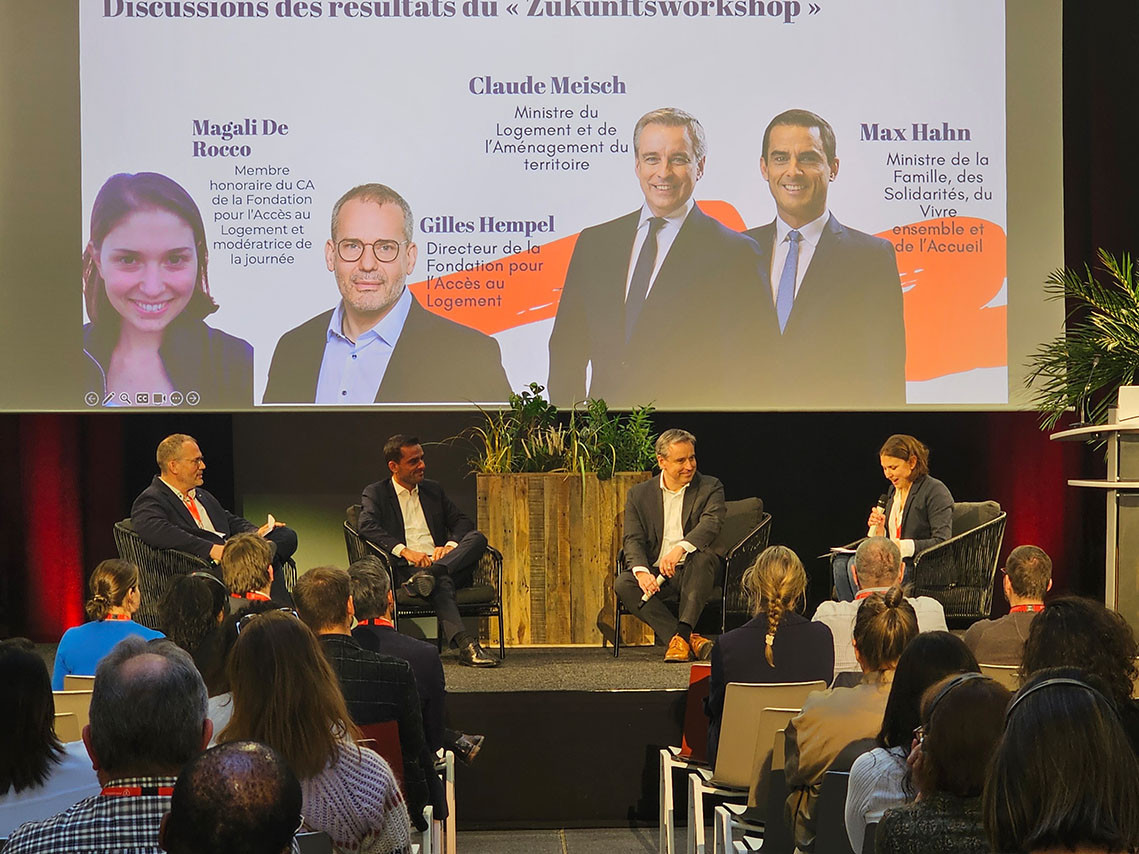Since its creation in 2009, the foundation has grown to become an essential player in the fight against precarious housing in Luxembourg. Today, it manages nearly 700 social housing units, works with 57 local authorities and employs 52 people. In their opening speeches, Patrick Bousch (chairman), Marco Hoffmann (honorary chairman) and Gilles Hempel (director) highlighted the foundation’s achievements and reiterated the urgent need for action in the face of an ever-intensifying housing crisis.
Inspiring discussions on social housing
The conferences provided an opportunity to put national and international approaches into perspective. Jean-Michel Campanella, president of Mieterschutz Lëtzebuerg, presented the development of the association and stressed the need to defend tenants in a country where less than 3% of housing is social.
Dr Gerlinde Gutheil-Knopp-Kirchwald, from the Austrian Federation of Non-Profit Developers, presented the exemplary model of social housing in Austria, known for its durability and accessibility.
Laurent Ghékière, director of European Affairs at the Union sociale pour l’habitat, explained the financial mechanisms and public policies that make it possible to maintain a sustainable stock of social housing in France.
Imagining Luxembourg in 2040
One of the highlights of the day was the foresight workshop, where participants projected themselves 15 years into the future to imagine Luxembourg’s housing landscape. Drawing on examples from Austria and France, participants created fictitious newspaper front pages set in 2040, highlighting their visions of a future for housing in Luxembourg.
The results were presented to ministers Claude Meisch (minister for housing and spatial planning) and Max Hahn (minister for family affairs, solidarity, living together and reception of refugees) during a constructive and open discussion. The ministers welcomed the ideas presented and exchanged views with the participants in a convivial atmosphere.
A promising future for the foundation
While the housing crisis persists, the FAL remains more vital than ever. With a growing team and a mission rooted in social inclusion through housing, the foundation hopes to continue to develop its activities and strengthen its impact in the years to come.
